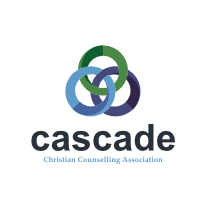Good mental health practices are important for everyone but especially for teens. Teens are experiencing growth spurts not only of their bodies but their brains, highs and lows of emotions unlike childhood, and an orientation to their friends and influences online. The teenage brain is more adaptive, open to exploration, more receptive to novelty, subject to hormonal “power surges” that flood the brain with estrogen or testosterone and is essentially a turbo-charged car with an inexperienced driver. Most students I know lack adequate sleep (9 hours a night is recommended) and that by itself leads to distraction and poor decision making. On top of that discernment, executive and logical thinking isn’t fully developed until the late teens to mid 20’s.
One in five High School students is dealing with a mental health issue, either struggling or diagnosed, and if left untreated this can lead to the development of long-term unhelpful patterns of thinking and acting. Early recognition and help is important.
The most common mental health issues for teens are Anxiety, Depression, Conduct Disorders, Addictions (including gaming and pornography) and Psychosis. For more information about the symptoms and warning signs for these, go to www.mindcheck.ca. This is a website designed for teens so they can inform themselves about these issues, and find coping skills and other resources. Parents can check out keltymentalhealth.ca for information and resources for themselves and find ways to support their teen.
The most important mental health strategies are:
1) Adequate sleep (preferably 9 hours per night) during the night, and good sleep hygiene (no screens one hour before bed and none in the bedroom, regular hours of sleep, finish homework early, do something positive and calming before sleep)
2) Nutritious food on a regular schedule. Breakfast (with protein) is essential for good thinking.
3) Positive social support and encouragement: parents, relatives, other caring adults, and solid friendships with at least one good peer. Negativity, criticism, lecturing and “telling them what to do” does not help them develop the skills they need. Adults can take more of a listening and coaching role, helping them see the problem from different angles and generate and evaluate their own ideas on how to solve it.
4) Regular exercise which helps burn off the stress chemicals that can build up in the body.
5) Have good strategies to help yourself calm down. Breathing, withdrawing from a high conflict situation until you can form a strategy to address it, take a break, eat something nutritious and drink some water, do something active, find a friend who listens.
6) Develop good negotiation and conflict resolution skills aiming for win/win solutions.
7) Develop an attitude of gratitude and as much as possible embrace forgiveness, kindness and compassion as a way of life.
8) Ask for help. Kelty Mental Health is a BC organization designed to support teens and families dealing with mental health issues. Find out what is available locally.
Jan Bryant, BA, LLB, M.Ed., RCC
Contract Counsellor, CCCA

